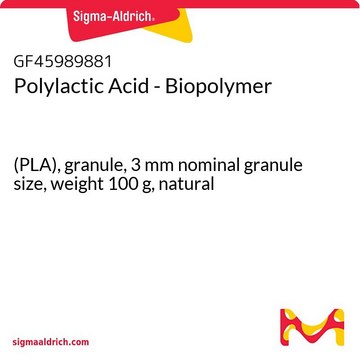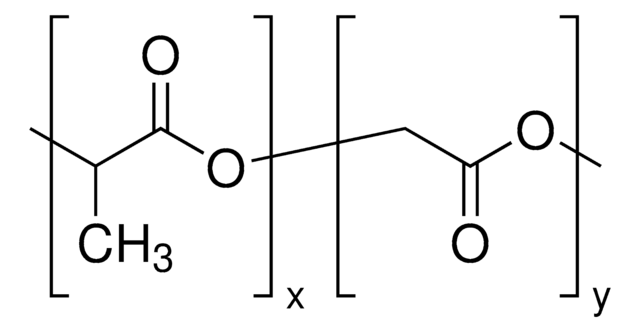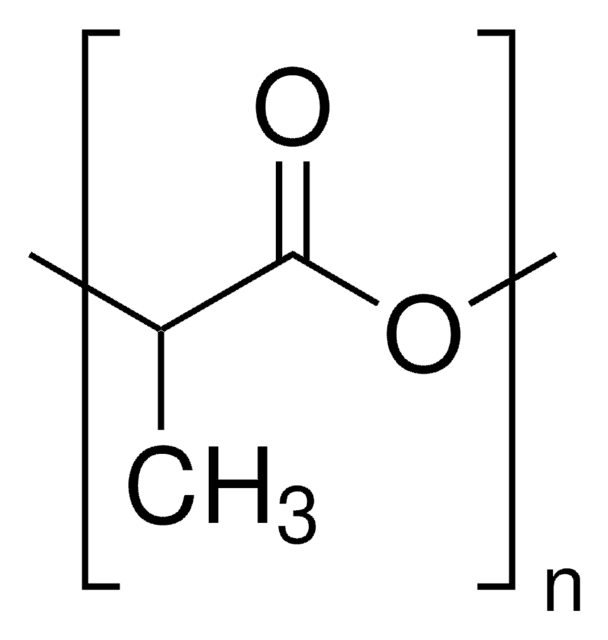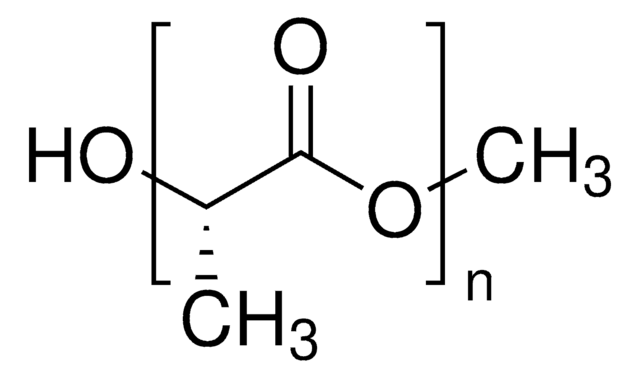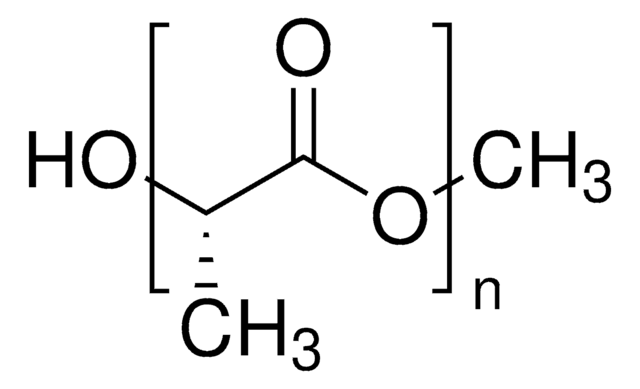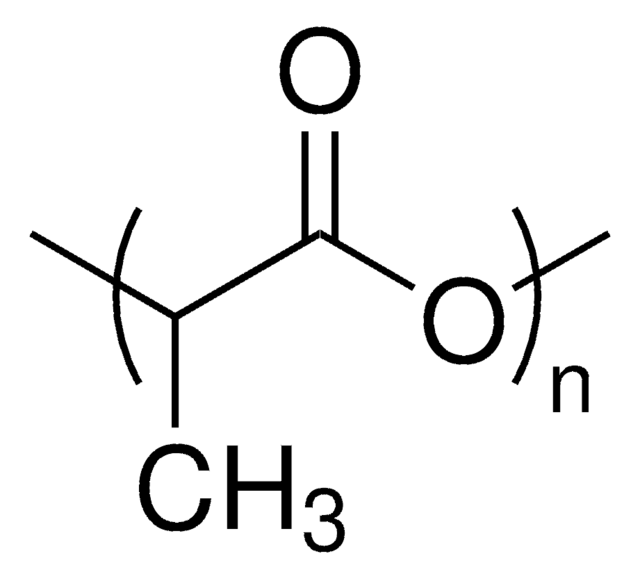94829
Poly(L-lactide)
average Mn 40,000
Synonym(s):
PLA, Poly(L-lactic acid)
About This Item
Recommended Products
description
ester terminated
Quality Level
form
solid
mol wt
average Mn 40,000
degradation timeframe
>3 years
Application
Other Notes
Storage Class Code
11 - Combustible Solids
WGK
WGK 3
Flash Point(F)
Not applicable
Flash Point(C)
Not applicable
Personal Protective Equipment
Choose from one of the most recent versions:
Already Own This Product?
Find documentation for the products that you have recently purchased in the Document Library.
Customers Also Viewed
Articles
Interest in utilizing biodegradable polymers for biomedical applications has grown since the 1960s.
Aliphatic polyesters such as polylactide, poly(lactide-co-glycolide) and polycaprolactone, as well as their copolymers, represent a diverse family of synthetic biodegradable polymers that have been widely explored for medical uses and are commercially available.
Aliphatic polyesters such as polylactide, poly(lactide-co-glycolide) and polycaprolactone, as well as their copolymers, represent a diverse family of synthetic biodegradable polymers that have been widely explored for medical uses and are commercially available.
Immunosuppressive tumor-associated myeloid cells (TAMC) are responsible for glioblastoma (GBM) resistance to immunotherapies and existing standard of care treatments. This mini-review highlights recent progress in implementing nanotechnology in advancing TAMC-targeted therapies for GBM.
Our team of scientists has experience in all areas of research including Life Science, Material Science, Chemical Synthesis, Chromatography, Analytical and many others.
Contact Technical Service
